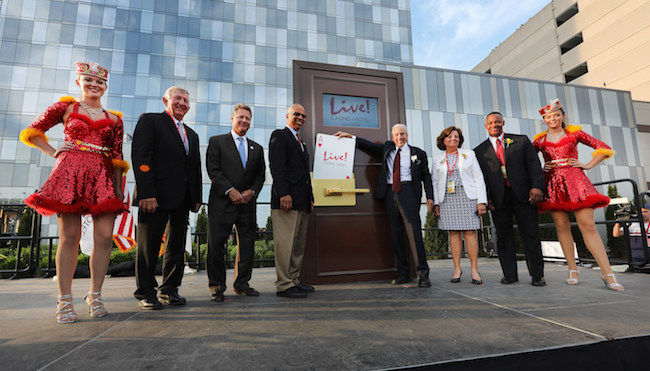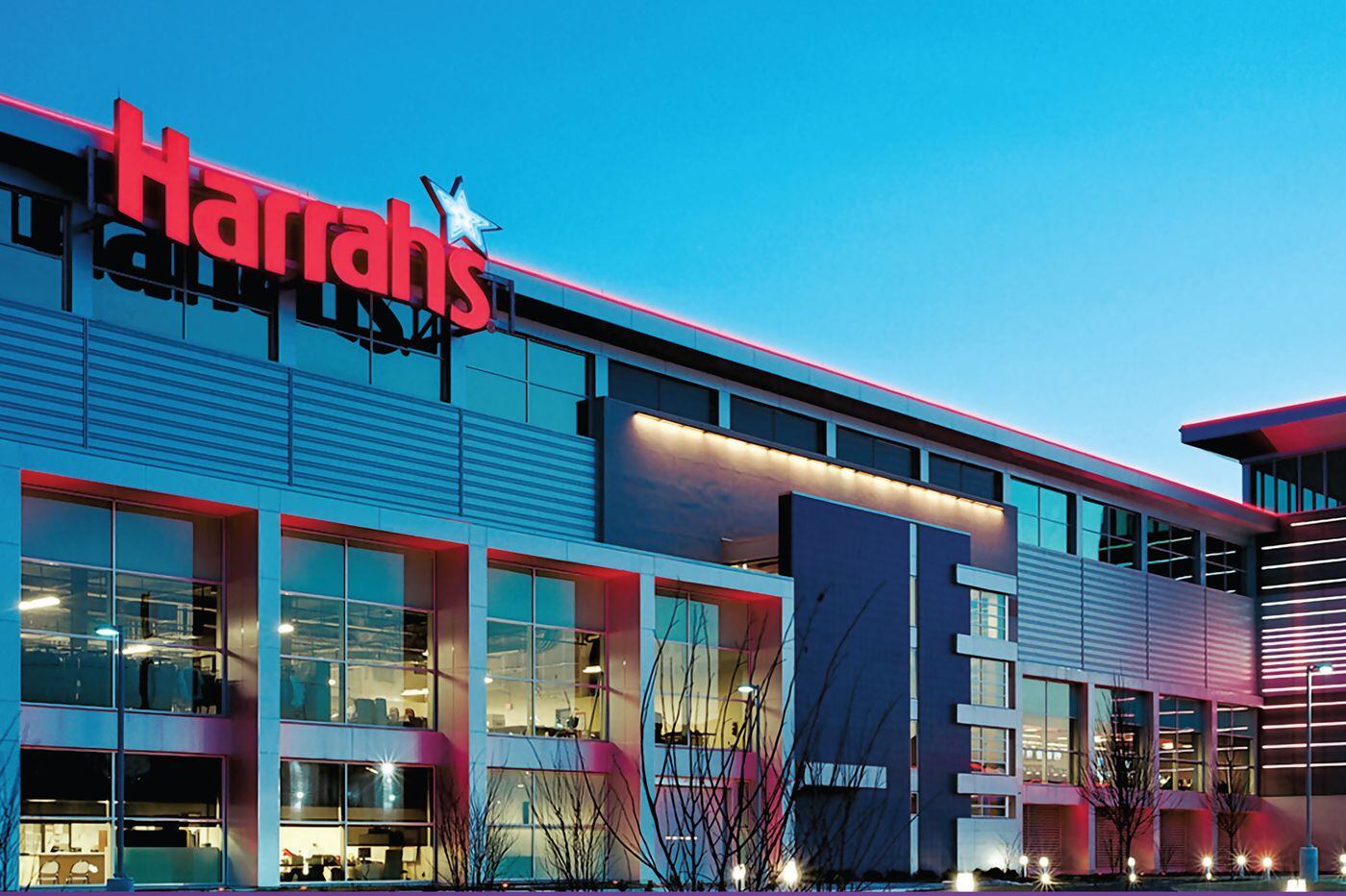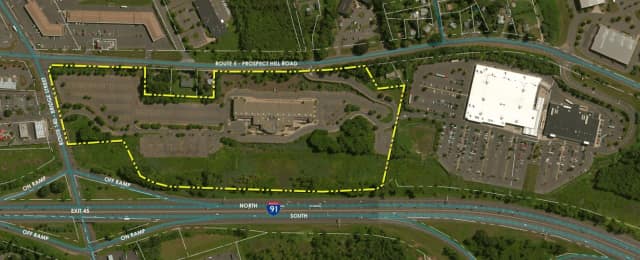Third Casino
Jul 20, 2017 Third Casino Signed Into Law by Malloy Connecticut’s third casino has been authorized by General Assembly, and after signing the bill into law Thursday, progress could start immediately. Dec 23, 2019 The major reason the region doesn’t already have a casino is the legal travails of the Mashpee Wampanoag tribe, which the Legislature originally expected would own the third casino. Dec 19, 2014 State law allows for up to three casinos and one slots parlor. This year, the commission awarded licenses to MGM in Springfield, Wynn Resorts in Everett, and Penn National Gaming for a slots.
Connecticut state officials and the state’s two gaming tribes are not taking no for an answer when it comes to the Department of the Interior Department’s refusal to act on the amended state tribal gaming compacts that were penned last year and forwarded to the department for its approval.
The approval is needed for the tribes to begin building their East Windsor casino that will, they hope, provide some defense against the effects of the $960 million MGM Springfield against their two casinos when it opens this fall. The tribes, the Mohegans and Mashantucket Pequots, operate the Mohegan Sun and Foxwoods Resort Casino. Once fierce rivals, they have joined forces to form the joint authority MMCT to operate a third, satellite casino. But the refusal of the Interior Department to issue a ruling on the amended compact has frozen them in place—all the while that the MGM Springfield marches inexorably forward.
The acceptance of the amendments was a requirement of the legislation that authorized the third casino. That requirement was included because of the exclusivity clause of the compacts, which guarantees that the tribes will have a monopoly on gaming in the state, in exchange for paying the state 25 percent of their gaming profits.
So far, the state and tribes have gone to court to try to shake the action loose from the department. But last week several Connecticut members of Congress called on the department’s Office of Inspector General to look into the matter. U.S. Senators Richard Blumenthal and Chris Murphy and Reps. John Larson and Joe Courtney, sent a letter to the Inspector General requesting the probe.

In their letter they wrote, “This decision raises serious questions as to whether the Department of the Interior is properly carrying out its longstanding legal trust responsibilities regarding Native American Tribes.”
Although the state and the tribes forged new compacts last year, the Interior Department did not act within the 45 days required by the Indian Gaming Regulatory Act (IGRA) or so the tribes and the state contend.
The members of Congress imply that the department was improperly influenced by lobbying from MGM International and elected officials from Nevada, while refusing to see representatives from Connecticut.
They point to a February 1 article that appeared in Politico that documented that Interior Secretary Ryan Zinke and other department officials met with MGM lobbyists and members of Congress pushing for MGM.

“Specifically, the Politico article raised issues of potential conflicts of interest and impartial decision making, noting that the secretary refused to even talk with members of the Connecticut delegation about these Connecticut-specific amendments while ‘MGM and its allies had direct access to Interior,” says the letter.
MGM has fought the third, satellite casino in the courts and in the halls of the Connecticut legislature, seeing it as a direct threat to its Springfield casino. However, even if MGM can’t stop the casino, delaying it until after the Springfield casino opens might be an effective strategy.

Says the letter, “The Nevada-based MGM has a direct economic interest regarding Interior’s decision on the proposed amendments, as the casino that is the subject of the amendment could potentially compete with its newly constructed casino on the Connecticut-Massachusetts border. However, MGM has no connection to the legal trust responsibility Interior has to the Mohegan and Mashantucket Pequot Tribes. As such, the company’s activities should have had no bearing on the question before the department or on its decision regarding the proposed amendments.”
The department’s Acting Assistant Secretary for Indian Affairs, Michael S. Black in September sent a letter to Connecticut Attorney General George Jepsen indicating that the department didn’t have enough “information upon which to make a decision as to whether a new casino operated by the Mohegan and Mashantucket Pequot Tribes would or would not violate the exclusivity clauses of the gaming procedures.”
Third Canonical Hour
This, despite the fact that months earlier another official from the department had sent a letter stating that the department was likely to approve of the amended compact.
This prompted the tribes and the state to file a lawsuit in November to try to force a decision.
MGM’s spokesman Uri Clinton, who is also the legal counsel for the company, issued a statement responding to the call for a probe: “There is litigation already underway which will ultimately determine matters in the public interest that the proposed federal review seeks to address,” adding, “A federal court will resolve these issues in due course.”
If the tribes are ever allowed to open their $300 million East Windsor Casino, at least they know approximately what it will look like.
MMCT, the joint tribal authority, last week submitted tentative drawings, sketches really, to the city of East Windsor’s planning and regulatory boards, indicating a one-story facility with a five-story, 1,800 space parking structure at the 26-acre site of the defunct casino, which will be demolished beginning February 28. MMCT paid $4 million for the property.
A more polished vision of the casino will likely be forthcoming soon now that the tribes have hired JCJ Architecture of Hartford; and California-based Tutor Perini Building Corp., construction manager Bertino & Associates, and for marketing: Cronin of Glastonbury.
There is so far no timetable for the actual construction. A town official admitted that the tribes are behind schedule. “Would we have liked to see the demolition in October or November?” the official told the Hartford Courant. “Sure. But they are not that far behind.”
MMCT spokesman Andrew Doba commented last week, “We’re making progress and look forward to continue working with our partners locally and in state government in the fight to save jobs and revenue.”
Meanwhile, MGM has ramped up its efforts to compete with the tribes in their own backyard by intensifying its campaign for a $675 million casino in Bridgeport’s East End on waterfront property that was once a steel plant.
Robert Christoph Sr., president of RCI Group, which is developing that site, told CT Post: “As property densifies and more activities are there, certainly more people will come to use that area of the city, as well as be able to need other services that hopefully other parts of the community will be able to provide.”
Elizabeth Torres, president and chief executive officer of Bridgeport Neighborhood Trust, who was also interviewed by the Post, “I think that for a long time the East End of Bridgeport was forgotten, and that’s changing.” Torres is a supporter of a Bridgeport casino because of the collateral effects it would have of generating new business.
Labor unions have jumped on board the Bridgeport casino band wagon.
February 6, the union Unite Here held a rally at the First & Summerfield Church in Bridgeport attended by three mayors, four state lawmakers, a candidate for governor, several aldermen and about 85 union workers from MGM casinos who talked about jobs creation.
MGM has committed to building a workforce development center in the state capitol, where 2,000 employees could be trained.
New Haven Mayor Toni Harp spoke of the agreement her town has with MGM to work for the Bridgeport casino in return for jobs generated in her town. MGM claims that the Bridgeport casino would generate 7,000 jobs.
Unite Here Local 35 president Bob Proto said he had struck an agreement with MGM to not interfere with the union organizing workers if a Bridgeport casino is built.
The CT Mirror quoted Proto: “This state needs new ideas, and now, a private investor wants to come in, who won’t put a burden on taxpayers. But we have some folks that are cynical and narrow-minded in this state. Ask the folks in this region, in Bridgeport, if they want a good job with benefits. Because if you go against this project, you’re going against opportunity. And the fact is we’re not going to let that happen.”
Third Casino Mission Gta
Rep. Toni Walker two weeks ago introduced a bill that would repeal the state’s authorization of the commercial casino run by MMCT and replace it a competitive bidding process for a casino in the state that would be open not only to the tribes, but also to MGM International.
Pointing to the delays that MGM’s lobbying of the Interior Department has created, Walker said that the state’s financial condition makes it necessary to act now.
“It could take years, and we don’t have years,” said Walker. “We need to get these jobs and training. We need to move forward and allow other business.”
Following the introduction of Walker’s bill, MGM’s Uri Clinton issued a statement: “MGM favors an open bidding process, so it can win business away from a competitor. The legislative proposal announced today mirrors industry best practices by establishing a truly competitive, open and transparent process,” adding, “That’s really all MGM has asked for from day one: a fair chance to compete for Connecticut’s first commercial casino license rather than seeking an exclusive no-bid hand-out.”
He added “We look forward to pursuing this opportunity as soon as the bill passes. We are fully prepared to present a compelling proposal that will create thousands of jobs, boost the state’s economy and drive tourism, offer significant opportunities for local businesses, and provide substantial revenue to the state and its municipalities. And we continue to believe that Bridgeport is the best location for a commercial casino … to achieve all of these objectives.”
The schools chief in Bridgeport, Supt. Aresta Johnson, says he want his school board to be part of the conversation.
“Other stakeholders across the city have met and been involved and engaged in this conversation,” she said. “But the board has yet to come to the table and say ‘What are you going to do for our kids?’ ” The school board says it routinely ends up losing from state and city education funding.
Without the bill, MGM is left with a proposal for a casino but no legislative foundation for getting one approved by the state.
Opponents of the MGM proposal point to the longstanding relationship between the tribes and the state, a relationship that last year paid the state $264 million, although that’s compared to $430 million that the tribes paid ten years ago.
MMCT’s Andrew Doba declared, “Let’s call this bill what it is: the MGM Massachusetts Protection Act. A bill that will cost Connecticut $1 billion in revenue and eliminate 4,000 jobs was a bad idea last year, and is still a bad idea.”
The bill would require that any proposal commit to employing at least 2,000 and investing at least $500 million. It would have a non-refundable $50 million licensing fee. The casino would pay 25 percent of the gross to the state and set aside an additional 10 percent of slots revenue for educational grants.
The co-sponsor, Chris Rosario told the Courant, “The process will let every developer with an interest — whether it is MGM or the tribes or anyone else — give it their best shot. It is a process that is consistent with industry best practices, and it’s best for Connecticut.”
While not attacking the new bill, Governor Dannel P. Malloy’s office said that he wanted to focus on creating and keeping jobs and opposes violating the existing compacts with the tribes.
Several key legislators who helped shepherd last year’s tribal bill have stepped up to criticize the bill.
“If this proposal proceeds—which I doubt it will—I will vehemently oppose it,” declared state Senator Cathy Osten. “Connecticut is already on track to open a new tribal casino in East Windsor that will protect existing casino jobs in the state and grow new jobs, which will help our economy, and that progress shouldn’t be derailed.”
Third Case In Oklahoma
The state-tribal relationship dates back to the 1990s.
The Mohegans were once in the same position as MGM, but in reverse. They competed in Massachusetts for the right to build a casino in the Boston Metro area and in Western Massachusetts. They lost out to Wynn Resorts for the Boston zone, and have been in court challenging that result ever since, claiming that “the deck was stacked from the start.”
The forced resignation of Steve Wynn as chief executive officer and president of Wynn Resorts, has produced a new breeze to fill their sails since the sexual harassment settlement Wynn made to a former employee was never revealed to the Massachusetts Gaming Commission when it was considering Wynn’s bid.